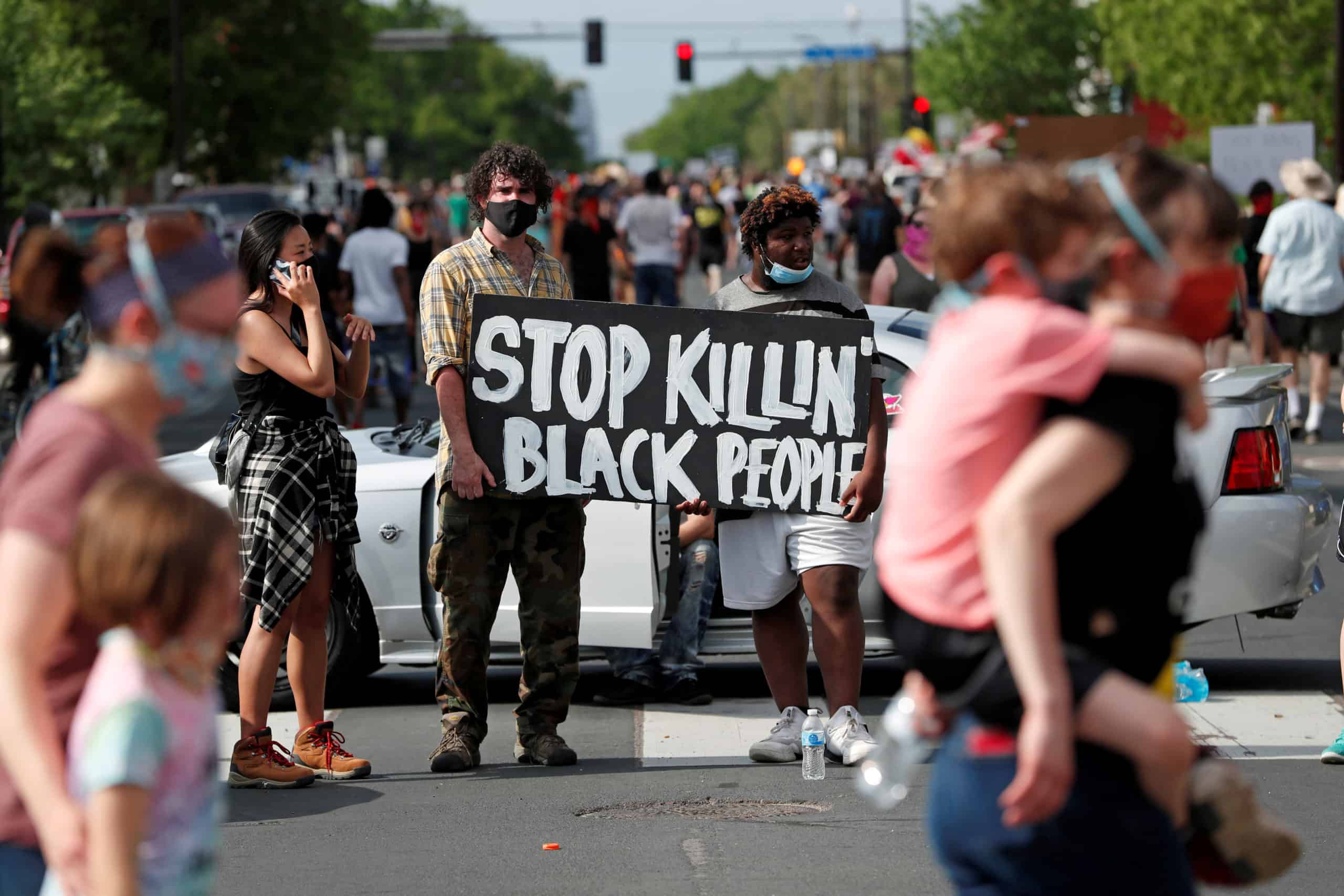We are asking for breath.
“I can’t breathe!” cried Eric Garner before dying on July 10, 2014 at the hands of the police in Staten Island, New York. “I can’t breathe!” cried Freddy Gray before dying at the hands of the police in April, 2015 in Baltimore, Maryland. “I can’t breathe,” cried George Floyd before dying this Monday, May 25 in Minneapolis, Minnesota at the hands of the police.
We are crying for breath.
In today’s America, one is never Black enough to be seen or heard. This is true even when desperately begging for life, for breath. Despite the stereotype that “Black people are too loud,” when it comes time to cry for our lives, it seems we cannot be loud enough to be heard by police.
Today, while many are protecting themselves against COVID-19, a respiratory illness, Black people are reminded that we need to worry about both COVID-19 and the police restricting, or stopping, our ability to breathe.
George Floyd, a 46-year-old man, gave his last breaths under the knee of a white police officer to whom his cries were inaudible. One can make assumptions about the intentions (subconscious or not) of a white police officer excruciatingly choking a Black man whose nose is bleeding into the street until he is unconscious. The seeming lack of equality in how compassion and human decency are meted out to black people in various altercations with the police does not cease to be a national disgrace.
Despite the videos circulating on social media, the initial police report of the incident failed to mention that the officer’s knee was on Floyd’s neck and that he was jammed to the ground for over eight minutes.
Nevertheless, all of America is free to see the truth of what happened.
Minneapolis Mayor Jacob Frey said, “Every bit of what I saw was wrong.” Emotionally, he continued, “It was malicious. And it was unacceptable. There is no gray there.”
As a Black man living in America, the video of George Floyd’s suffocation cues unhealed experiences with police in this country and makes me less optimistic that change between the Black community and the police will soon change. Though the officers were fired and a new FBI case opened, this killing still triggers the trauma that so many of us have experienced.
Being Black in America should not mean we walk in fear of death. But it does. It should not mean we have less access to breath. But it does.
The job of the police is to protect and serve. During George Floyd’s agony, however, we see officers stand by without assisting the dying man. “They were supposed to be there to serve, and to protect, and I didn’t see a single one of them lift a finger to do anything to help while he was begging for his life,” Floyd’s sister, Tara Brown, said. Unfortunately, surviving the police has become the daily prayer for many Black men in America.
Research has shown that Black people are more likely to be stopped by police. I have been stopped arbitrarily by the police and now get nervous each time I see them, wondering if it will be my cause of death. Until we can have an open and honest national dialogue about racism and racial bias, this legitimate fear will continue. Until white people, especially those charged with carrying weapons to protect and serve are adequately converted from the power or denial of their own racial bias, Black people will be panting for breath.
Floyd’s sister, Philonise Floyd, said, “They treated him worse than they treat animals.” This is the reality of the Black community’s experience with policing in the U.S.
Discussing the police who ignored eleven cries for breath from Eric Garner, the philosopher George Yancy writes, “What were the distorted assumptions, affective rigidities, and moral opacities that occluded the movement necessary for those white police officers to see/hear that Garner was in distress, struggling to breathe, to aspire?”
We could ask the same about the suffocation of George Floyd.
Dr. Yancy quotes Toni Morrison who locates the problem, a white problem, “somewhere between retina and object, between object and view.”
Perhaps police academies need to hire experts who can better train the ears and eyes of police officers so that they can actually hear when Black people desperately cry, “I can’t breathe.” Perhaps all white people need to find a way to better train their ears and eyes to adequately see and hear black people.
Blacks are constantly begging for oxygen, a gift that God granted everyone. Centuries of systemic racism, such as redlining and gerrymandering, have rendered a long litany of resources unavailable to the Black community.
Air should not be added to the list.
It is hard for Black people to have to ask for their humanity to be recognized while also asking for breath. But here we are:
Crying out for an America where we can trust the police.
Crying out for an America where our right to life matters.
Crying out for an America where we can be seen and heard.
Crying out for an America where we can enjoy the same privileges of breath.
Crying out for oxygen that is not polluted by the contagions of racism.


